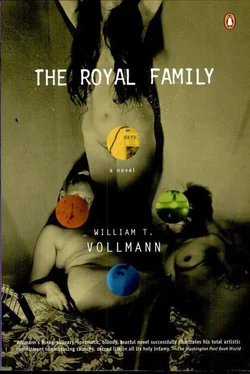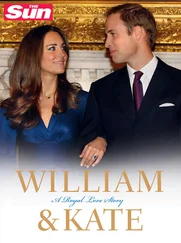Boccaccio’s, John? said Mr. Rapp, with a smile that was not the approving one; it was the smile that meant nothing. He had left his blazer in the inner office, as was his custom when not receiving clients, and his starched shirt was as white as the solid left behind after sodium has consummated its marriage with ethanol.
Sure, said John. I’m ready.
He felt that he could not eat anything. He did not know whether he was about to be rewarded or punished, and that uncertainty made him nauseous.
At Boccaccio’s, which was right across the street from a women’s shoe store swarming with golden high heels, black high heels, sandals with double or triple straps, sexy boots, silver snakeskin affairs that came up to the knee, they sat at one of those uncomfortably “intimate” tables so beloved by those office dictators whose hobby it is to gaze into one’s anxious face. He saw that the full partners were planning to order wine. John ordered a beer just to show them that he was his own man. They nodded indulgently.
What do we live for? declaimed old Mr. Singer in his best populist voice. Some fellows live for women. I live to eat. I’m not fat or anything, but I enjoy my food. Barton Rapp, now, there’s a man who lives for his operas and his wine rack.
(John had heard all this before.)
Mr. Singer leaned forward and fixed John with his eyes. — And what do you live for, John? he said.
I live for my work, replied John, trying not to be irritated.
Mr. Rapp frowned and waved a finger. — Not good enough! he said. Everybody works to live, but very few of us — not even full partners, John — can say the reverse. What about your wife? Don’t you live for her?
Let’s leave Irene out of this, said John as his wife’s unlovely face hung before him.
Have it your way, John, said Mr. Singer. Let’s put it like this: What are you about?
John gulped at his beer and tried to smile.
Mr. Rapp tapped his wineglass with a musical sound. — When you ask who a person is, what he’s about, you’re really asking what his fetishes are.
I don’t have any fetishes, Mr. Rapp, just habits. Are you dissatisfied with my work?
A tough guy, purred Mr. Rapp with a loopy smile. We like that. On the contrary, John. You’re doing an excellent job.
I’ve got to take a leak, muttered Mr. Singer to himself. He got up and strode toward the back, his round bald dome accompanying him like something sacred — talk about the Music of the Spheres!
What are your fetishes, Mr. Rapp? said John in his most level voice.
You’ve got guts, John. There’s a fine line between guts and impertinence, and you’ve never crossed that line.
Thanks, Mr. Rapp, said John.
Are you ready to order, gentlemen? said the waiter.
I’m going to have the warm spinach salad with chevre, said Mr. Rapp. And I believe that’s all I’ll have. John?
I’ll take the same, said John. And another beer.
John, John, go ahead and eat! Don’t let me stop you! I’m an old man.
All right, said John. How’s the salmon today?
Excellent, sir, said the waiter. It’s probably the best thing on the menu. That garlic aioli is to die for.
Fine, said John. I’ll take the salmon.
I’d like the terra cotta chicken, please, said Mr. Singer, now returned. And a small green salad. Do you understand that concept? A small green salad.
Very good, sir, said the waiter. More wine?
I understand you’re going to be a father, said Mr. Rapp, blinking sentimentally. Congratulations, John. No, thank you. We have enough for now.
Thanks for the congratulations, said John, wondering who had told him about Irene’s mistake. — It may be another false alarm. By the way, Mr. Budrys hasn’t gotten back to me yet with the amended tobacco brief.
Oh, he hasn’t? Well, you know we’re getting pretty close to deadline on that one, John.
I’ll lean on him, said John.
Well said! cried Mr. Rapp, clapping his hands. John, you’ll go far.
But you never did tell us what you’re about, said Mr. Singer. Or did I miss something when I peed?
I’m about nothing, said John. Exactly nothing.
Spoken like a full partner, chortled Mr. Singer.
We think you have the makings of a full partner, echoed Mr. Rapp.
Well, thanks, said John awkwardly.
That afternoon there had been no message from Brady and no other work, so Tyler went back to Larkin Street to observe yellow RX-7s and white Chevys emerge from the Queen’s parking garage, fouling the air. He watched them for a long time, writing their license plate numbers in the lines of his youngest surveillance report, emptily perceiving rather than learning, of which he was tired. The grin of light between a car’s belly and the shiny concrete floor widened as the little wheeled monster rolled closer. The buzzer sounded twice. Across the street, a dirty foot hung out of a dirty sleeping bag; a longbearded man sat upon the sidewalk, gazing pupillessly at another sleeper whose red underwear made his buttocks one with the square tail-lit backsides of cars. The buzzer sounded again. The car came out, its brilliant yellow eyes suddenly impoverished by the day. After that, a shaveskulled guy strung chain across the darkest tunnel. Watching the car go, Tyler spied a black-and-white crawling lazily by, bearing to the police station a silent young man with his chin on two fingers which hid behind the goatish beard; Tyler had seen him selling drugs sometimes on Jones Street. The police car went around the corner and out of the life of Tyler, who continued to sit in the yellow zone, dreaming of nothing with an almost Leninist confidence. Finally he cruised up to Union Square, rolled down his window, inched along in traffic (which, unlike most people, he loved; it gave him time to see things), and studied the giant palenesses of black and white glamor girls in the store windows. He counted the stripes on the awnings of hotdog stands. If he could simply get a name for the Queen, he’d be able to run an extended trace; then he’d surely snatch her social security number, her statewide criminal record, and some address, however worthless. He loved extended traces. It was a white, foggy afternoon crawling with obsequious light, which must have been why the darkness between buildings refused to be worshiped, let alone lovingly touched. He took a spin across the Bay Bridge. Behind him, the trunks of skyscrapers faded into fog regularly notched with greyness where the windows were. Irene had mentioned seeing plum blossoms in Berkeley or Oakland. He drove around for an hour or two, but didn’t spy any. At dusk he returned to San Francisco. The line at the toll booth wasn’t too bad; he struck the Mission in twenty minutes. He wondered what Brady was doing. Under what pretext could he call the man up? No news was not good news in Tyler’s occupation. Thanks to credit card debt, his savings account now trembled not far above zero — absolute zero, when every last financial molecule falls still and silent — but he didn’t want to check his answering machine, which surely bore no offerings of work. Feeling blue, he parked in an alley just off Sixteenth and Valencia, zipped his jacket over the bulge in his left armpit, and wandered into one of those little cafés with excellent coffee and bad art on the walls. A name, a name, and then she’d become real. Maybe the bail bondsmen would know her — but he had to get a name first. There being no reason not to finish this wasted day as he’d begun it, he ordered a bottle of mineral water and sat himself down at a corner table to read the Guardian ads: Women Egg Donors Needed! — Redundant gender description, thought Tyler. The other patrons hunched at their own tables, reading.
Читать дальше












